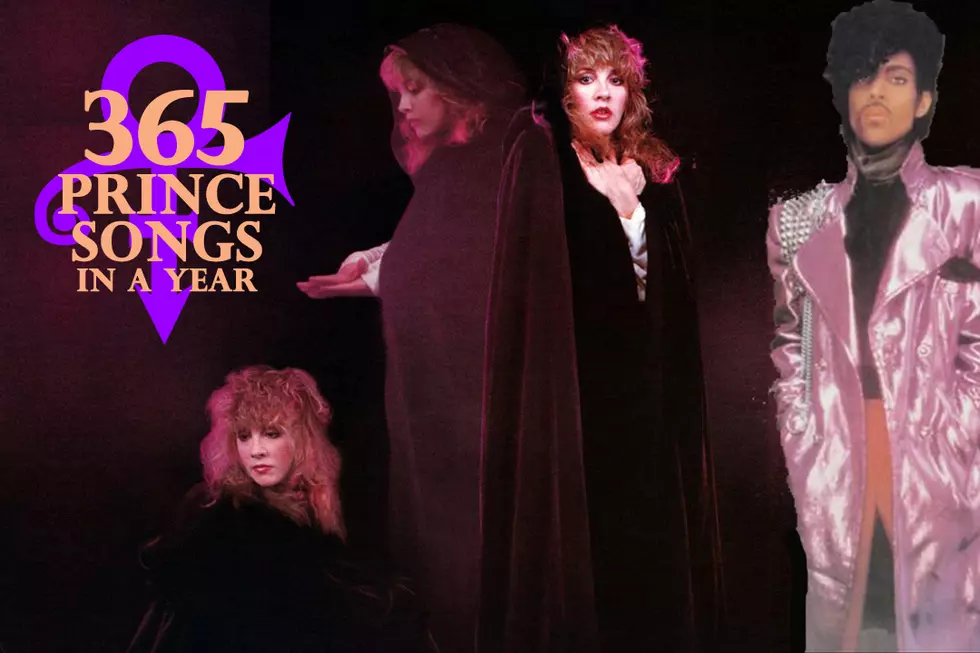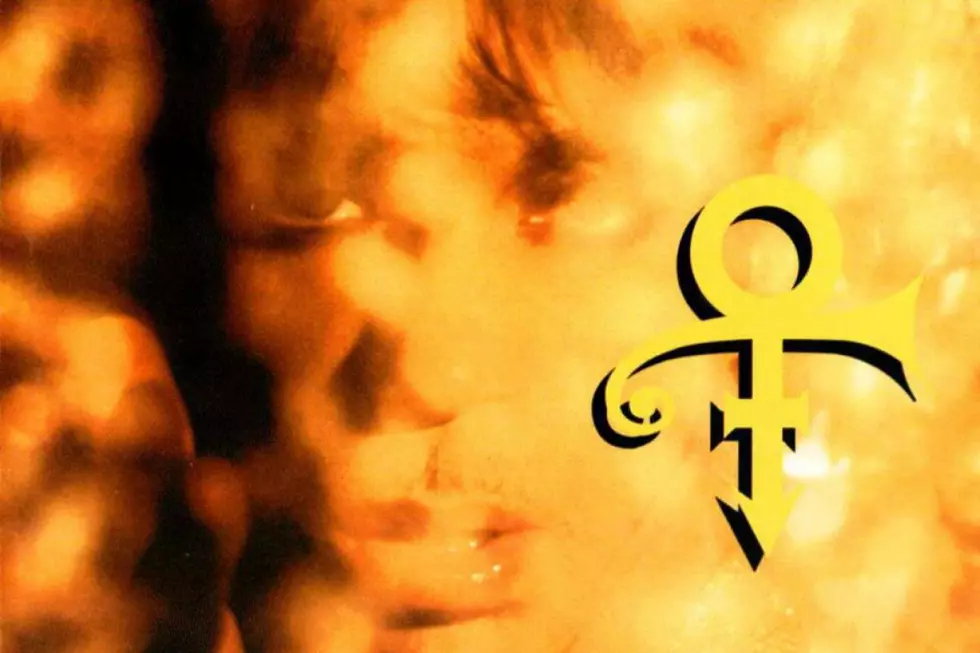Prince Anonymously Explores Jazz With Madhouse: 365 Prince Songs in a Year
To celebrate the incredibly prolific, influential and diverse body of work left behind by Prince, we will be exploring a different song of his each day for an entire year with the series 365 Prince Songs in a Year.
Few outside musicians had as much of an impact on Prince's music as did Eric Leeds. The horn-player's angular jazz background provided the perfect counterpoint on everything from "Girls and Boys" to "Hot Thing" to "Last Heart." So it was only fitting that Prince gave Leeds his own showcase in the form of the jazz-funk project Madhouse.
The group's first album, titled 8, was advanced by the single "6," on Jan. 14, 1987. In keeping with so many of Prince's outside projects back then, 8 arrived with no mention of his contributions. In fact, Madhouse was all Prince, save for improvisational elements from Leeds.
"I was very fortunate and grateful for the role that Prince provided for me in his band as the primary instrumental soloist, other than his own guitar solos," Leeds told the Quietus in 2015. "Perhaps he was interested in giving me an expanded platform. But he was someone who always had music in him that he needed to get out, so even if I had not been involved with him I suppose he might have done a project like this anyway. This was a period during which he was still defining himself, and that included a keen interest in instrumental music."
In fact, a pair of instrumentals co-written by Leeds and Prince had appeared on the Family's 1985 debut, and Prince briefly considered releasing similar material on a project called The Flesh. Instead, he turned his attentions to Parade, a 1986 album released by Prince and the Revolution that was dominated by sleek, horn-driven R&B.
By the time Madhouse finally emerged, it had become something else entirely: A career launching pad for Leeds, who ended up working with Prince off and on from 1985-2003.
For a while, they kept up the illusion that Madhouse was, in fact, a working group. A press release touted it as the brainchild of a fictitious Atlanta-based keyboardist named Austra Chanel. At one point, Madhouse was said to consist of drummer John Lewis, bassist Bill Lewis and Leeds – and Leeds was the only real person.
Ultimately, however, Leeds decided to reveal the truth. "This is dumb," he told Matt Thorne in Prince: The Man and His Music. "This is me and Prince making a record, and my bio looks better if we say it’s me and Prince."
Listen to the Family Perform 'Yes'
Rather than growing out of communal jams, however, 8 started like many Prince projects: He carefully layered in drums, bass and keyboards at his home studio in Chanhassen, Minn. (Paisley Park Studios was not yet complete.) But then, something interesting happened.
"The sessions were little different from any other session that I had done with Prince, though this project was just the two of us – and Susan Rogers who engineered the project," Leeds told the Quietus. "Prince laid down the tracks, and he would give me the melody lines such as they were, and we would go from there."
Leeds was clearly thrilled with the opportunity to blow. Still, he felt the lack of musical interaction kept 8 from rising to the level of great fusion.
"Prince didn't really approach this any differently than any other recording," Leeds added. "He would construct the songs in his head, lay down the drums, bass and keyboard tracks, and then bring me in to put on the heads and solos. This is hardly how a conventional jazz album would be recorded. I guess I would describe it as 'jazz influenced' and R&B-flavored instrumental music."
Despite his misgivings, Madhouse released a second album (1988's 16), and even appeared as an actual band, playing support dates on the Sign O' the Times tour with a lineup that included Leeds, Dr. Fink of the Revolution and Levi Seacer Jr., later a member of the New Power Generation.
And then something else interesting happened: A Madhouse third album, to be titled 24, eventually morphed into Leeds' first solo project, 1991's Times Squared. That opened a whole new set of doors for Prince's long-time sideman.
"We had these two albums we had done as Madhouse, the instrumental thing that he basically created for me," Leeds told the Pittsburgh Post-Gazette in 2016. "And I was working on what would have been the third Madhouse album, and in the midst of the project he came to me and said, 'You know, I want to sign you to Paisley Park Records and make this an Eric Leeds album instead of a Madhouse album.' And to be honest, that was probably the most significant gift."
More From Diffuser.fm









